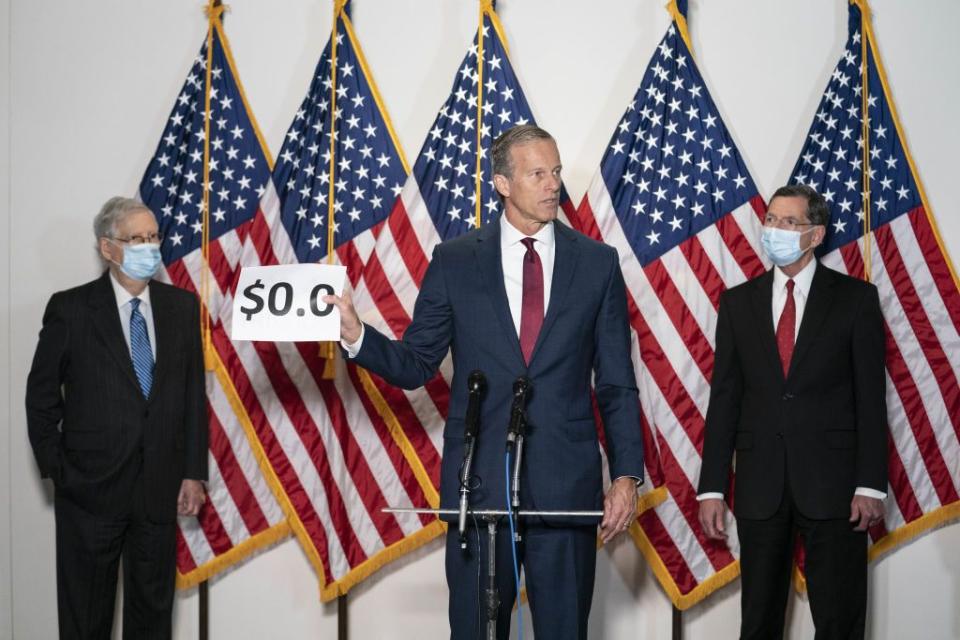The Impasse Over Coronavirus Relief Is Hazardous

(Bloomberg Opinion) -- Yesterday even the stock market paused to wonder whether the immediate outlook for Covid-19, and hence for the economy, gives cause for concern. Cases are spiking in much of the U.S. and Europe, hospitalizations are rising, and with a lag of several weeks so are deaths. Authorities are reintroducing tighter restrictions and wondering how far these should go. The danger that a new wave of the disease will induce a new slowdown in output and employment — with the serious collateral harm this would cause — is real.
With this scenario unfolding, what are Congress and the administration proposing to do? For the moment, it seems, nothing. Their desultory months-long discussion of a new coronavirus-relief package appears to have fizzled out. Perhaps the lame-duck session of Congress will get around to it after the election, perhaps not. This collective shrug of the shoulders is a disgraceful abdication of responsibility.
Big parts of the earlier relief measures ended over the summer. Those efforts had been commendably prompt and substantial, and deserve much of the credit for the strength of the subsequent recovery. But they haven’t been sustained. State and local governments are under great financial pressure. Millions of households are struggling, with their savings in danger of being depleted amid the prospect of renewed disruption and a faltering recovery.
With luck, lockdowns as severe as the ones imposed in the spring won’t be needed this time. The disease seems somewhat less deadly (thanks partly to better treatments and protocols) and much has been learned, or should have been learned, about how to reduce transmission more cost-effectively (in a word, masks). Even so, in recent weeks the recovery’s momentum has faded. With cases on the rise, the economic risks are mounting.
For weeks, the Federal Reserve has been as clear as it can be that monetary stimulus is too little by itself. The central bank has done everything possible, going so far as to recast its monetary framework, to assure investors that rates will stay low into the medium term. Bill Dudley, the former president of the New York Fed, insists that it can’t do much more. Chairman Jay Powell has already explained at length that renewed fiscal stimulus is essential and urgent.
In the most recent talks, the parties had all but closed the gap between their positions. Although a substantial new package of around $2 trillion looked achievable, internal disagreements on the Republican side and a universal reluctance to give way on details shut things down. Yet there’s little point in trying to assign blame for the impasse. Republicans, Democrats and the White House have agreed, in effect, that it serves their political purposes better to do nothing than to strike a deal that makes one side or the other seem the loser.
This pact of mutually assured dysfunction makes ordinary Americans the losers. Perhaps, with the election just days away, things are about to change. Let’s hope so.
Editorials are written by the Bloomberg Opinion editorial board.
For more articles like this, please visit us at bloomberg.com/opinion
Subscribe now to stay ahead with the most trusted business news source.
©2020 Bloomberg L.P.

